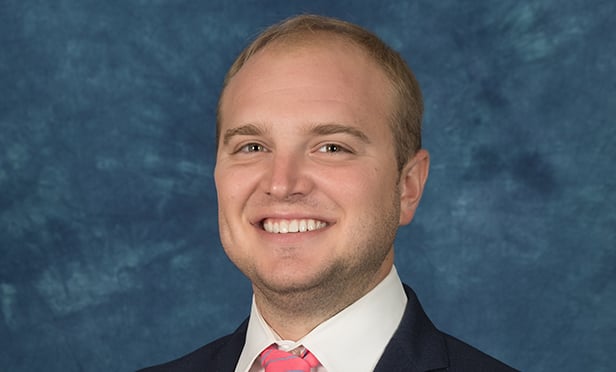That's beginning to change, however, as the hospitality sector is discovering the benefits of going green, and have a metric for measuring their sustainability beyond the merely cosmetic. Virtually unthought of even a year ago, today, 451 hotels have either achieved or registered for LEED certification, according to the United States Green Building Council. And the largest LEED certified building in the world is the Palazzo Las Vegas.
"This is the fastest commercial market segment we have," says Marc Heisterkamp, director of commercial real estate of the USGBC, Washington, DC. "Just 12 months ago, no one wanted to go beyond laundry [conservation]."
Interest really started to increase in about the last 18 months, says Joe McInerney, president and CEO of the American Hotel & Lodging Association, Washington, DC. "A lot of studies were done about the consumer interest, and people said we needed to do something," McInerney says. "Europe was way ahead of us, and most of the major hotel companies are multinational. They were getting pressure."
Ironically, says Dennis Quaintance--whose Proximity Hotel in Greensboro, NC recently was certified as the first LEED Platinum hotel in the US--hotels can be one of the easiest property types to become more sustainable--their owners have more motivation. "In most developments, the developer doesn't have anything to do with operating costs," says Quaintance, president and CEO of Quaintance-Weaver Restaurants and Hotels. "With hotels, they do."
Yet there are a number of reasons why hotels have been slower to adopt green policies. The buildings themselves often are highly leveraged, so builders are reluctant to add even a nominal additional cost, Quaintance says. Ownership of the buildings themselves are fractured: though a building may bear the name of Hilton, Marriott or Westin, it often is owned by a franchisee, large or small. In addition, much like a retail facility, a hotel operator is also subject to the behaviors of its users. "You don't control your entire environment," Heisterkamp notes. "Your guests do."
To meet their own goals, government and corporate meeting planners are beginning to ask more specific sustainability questions as they plan for locations, such as a facility's Energy Star score and the amount of waste being diverted.
To do so, developers are employing a combination of techniques from various other sectors--the windows and natural daylight in an office building, but the need for commercial kitchens that would be found in a restaurant. Not unlike a home, thermostats can be set to permit a range of temperatures which can help guide the guests to save energy, while motion sensors can cut power to unoccupied rooms, a technique found in newer office buildings. Light bulbs can be easily replaced with more efficient models. "There are a number of things you can do," McInerney notes.
Proximity also has an adjacent bistro, which allowed its developer to use a number of technologies as it achieved an unplanned level of sustainability. "We were surprised," at the Platinum level, says Quaintance. The goal had been to create a sustainable hotel, with LEED as a guideline. "Our goal was to consider sustainability with each decision. And with every decision, there was one more thing to consider."
[IMGCAP(2)]By using the latest construction technology and efficient materials, the Proximity uses 41% less energy than a conventional restaurant. Variable speed hoods in the restaurant uses a series of sensors to judge and adjust of the kitchen's needs. Hot water is heated by 100 solar panels covering the 4,000-sf roof, with geothermal energy used to power the restaurant's refrigeration equipment, saving water. Recycled wood is used for tabletops and trays, and high efficiency water fixtures are used throughout the guest rooms. Even the elevators capture the system's energy and feed it back to the building's internal energy grid. Abundant natural lighting and operable windows also improve both the efficiency and ambience of the hotel.
"I don't understand why most hotels don't have solar heating for water," Quaintance says, who plans to retrofit his other hotels accordingly. "It's a great investment." And in fact, the Hilton Garden Inn Indianapolis, a hotel owned and operated by Rosemont, Ill.-based First Hospitality Group, Inc., has requested a grant from the Indiana Department of Energy and Defense to install solar panels on its roof.
And other chains are going truly green, albeit slowly. The major chains are working sustainable initiatives into their franchise standards. "These are large companies, so the change will be incremental," Heisterkamp says.
This year, Starwood Hotels opened its first two ELEMENT Hotels, the first hotel brand requiring all of its hotels brand-wide to pursue LEED certification. The hotels use energy efficient appliances and lighting, and water-saving fixtures, low VOC (Volatile Organic Compounds) paints and carpets with up to 100% recycled content and anti-microbial carpet pads which improve indoor air quality for guests and staff. Guests driving hybrid cars are rewarded with priority parking.
The hotels are located in Lexington, MA, and Summerlin, NV. Future hotels are planned in Tempe, AZ; Denver; Orlando,FL; Tampa, FL; Atlanta; Chicago; Leawood, KS; Ewing, NJ; New York City; Cary, NC; Irving, TX; Ashburn; Chantilly, Herndon and Vienna, VA; Vintage Park (metro Houston), TX; Palmdale, CA; Arundel Mills, MD (Baltimore), Toronto and Abu Dhabi.
And future development can be helped by the extension of the Energy Efficient Commercial Tax Deduction as part of the Wall Street bailout bill passed earlier this month. In addition, the AH&LA is working with the USGBC to create a LEED rating system specific to the hotel industry, which could even help resale values in the future, McInerney says. Ultimately, though, it is the consumer who is forcing the industry by going green.
"It becomes a buyer's market, particularly for government and corporate procurers," Heistercamp says. "LEED provides a common framework. It really means I want to put my money where my beliefs are."
Continue Reading for Free
Register and gain access to:
- Breaking commercial real estate news and analysis, on-site and via our newsletters and custom alerts
- Educational webcasts, white papers, and ebooks from industry thought leaders
- Critical coverage of the property casualty insurance and financial advisory markets on our other ALM sites, PropertyCasualty360 and ThinkAdvisor
Already have an account? Sign In Now
© 2024 ALM Global, LLC, All Rights Reserved. Request academic re-use from www.copyright.com. All other uses, submit a request to [email protected]. For more information visit Asset & Logo Licensing.








